Working nowadays and what to look for in the new norm
Future of workArticleMay 25, 20207 min read
The workplace in the age of Covid-19
Tentatively, gradually, the world is coming out of lockdown and carefully plotting the return to the office.
There are immediate practical considerations. Insurers are used to connecting with customers and their brokers from a distance, i.e., electronic quotes and policies, but there is a need for some employees, such as risk engineers and loss adjusters, to have direct contact with customers. Nevertheless, the safety and wellbeing of employees must come first, so that even for such high touch activities, new ways of working have been established, like technology enabled remote risk assessment.
Companies and economies will be looking at allowing those less at risk of severe illness from Covid-19 get back to the office earlier, with the right support and measures in place. At Zurich Insurance Group’s (Zurich) head office, for example, that could mean initially ensuring physical distancing by only having one person sitting at each four-desk island.
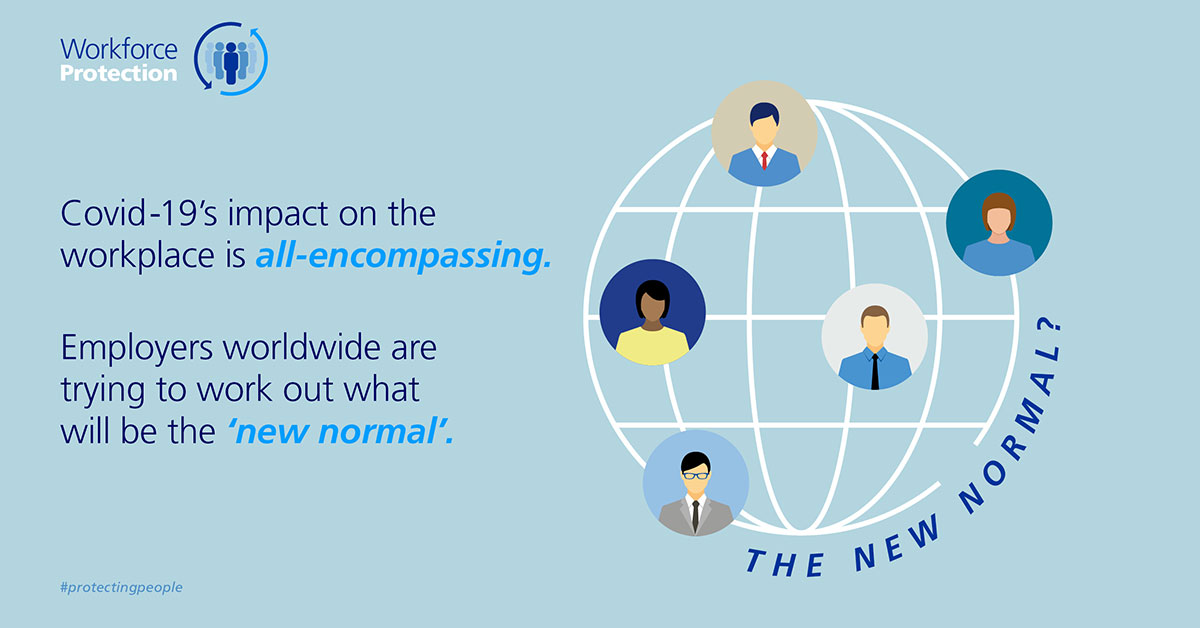
Bigger still, however, are the cultural considerations. Covid-19’s impact on the workplace is all-encompassing – the changes will not just be for the coming months while a vaccine is developed. Many of them will be permanent and employers the world over are trying to work out what will be the ‘new normal’.
The employee as king
Employees the world over have had no choice but to make working from home a reality. This has often been under highly challenging circumstances, balancing childcare and looking after loved ones.
“A few years ago, we were all talking about digital transformation and what it means to be customer centric,” says Patrick Sloukgi, Group Head of Business Resilience at Zurich. “The customer truly has become king. In the insurance sector, for example, that can mean the choice between shopping around online or going to an agency.
“But this new norm means that if you also want to get the best out of your employees, you have to make the system even more flexible than it used to be.”
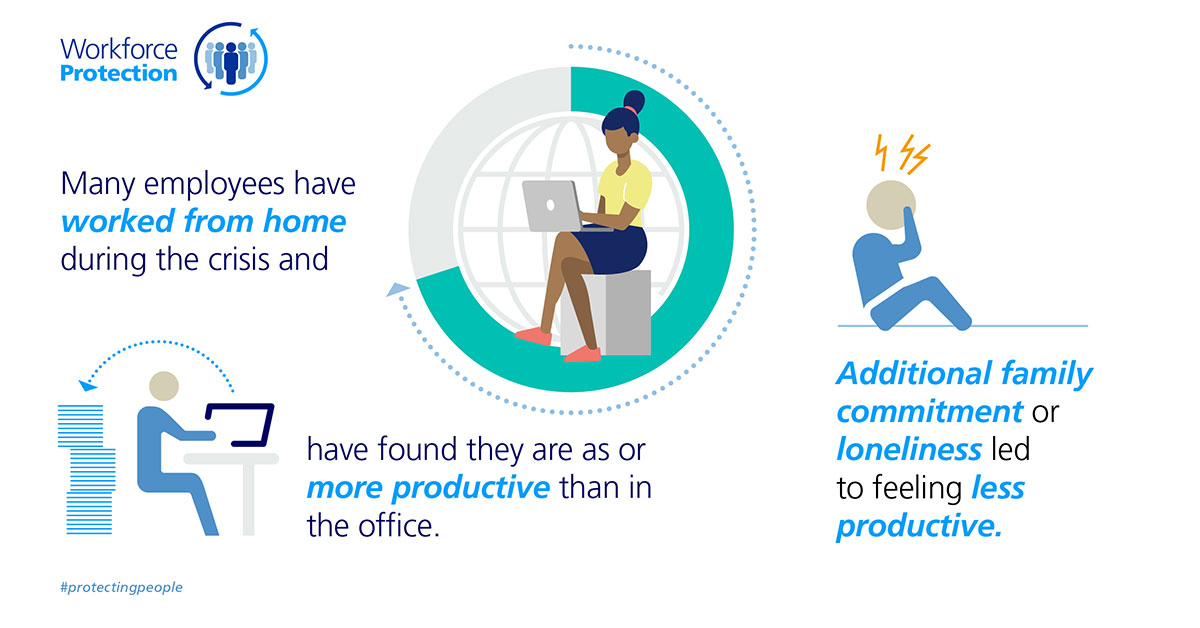
Around 90-95% of Zurich’s employees, globally, have worked from home during the crisis. Many commentators point to the fact that the majority of people working from home are as or more productive than in the office, with those remaining finding themselves less so, due to additional family commitment, loneliness, or other factors. This illustrates how employers will have to be more flexible in accommodating both those who work well at home and others who need the camaraderie of being in an office.
“Management style will have to change,” adds Sloukgi. “Under Covid-19, you have to get used to your team working remotely. Line managers who needed their team members working nearby have to adapt to this new reality. There will be this new norm in the management style of the people in that they have to provide more flexibility to their employees and empower them further.”
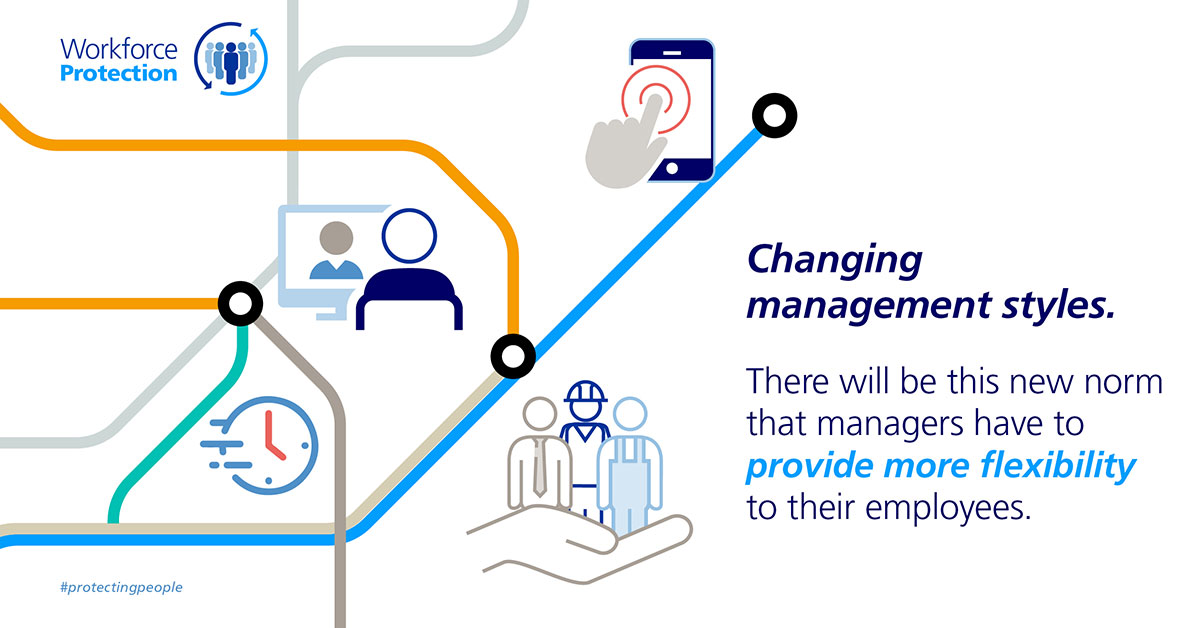
However, Sloukgi also warns that the home office can mean there is no buffer between working and personal lives. It requires finding the right balance between work and family. As such, finding moments to take fresh air, disconnect from work, exercise and meditate is key to stay healthy.
This is an issue that has particularly concerned Ellyn Shook, the Chief Leadership & Human Resources Officer at Accenture. “What we’re starting to see is a strong link between productivity and stress,” explains Shook. “People who are – for the first time, in many cases – learning to work from home need to understand that to sustain their productivity they have to take care of themselves better. The risk of burnout is extraordinarily high.”
Accenture is the world’s biggest user of Microsoft Teams, the digital meeting software. Shook is encouraging employees around the world to switch their status on Teams to being away from their desk and, if they are comfortable, stating why – be it homeschooling, exercising, or simply having finished work for the day. “That’s important, so that people understand there are boundaries in their home where they’re now working every day,” says Shook.
An age of trust
A fundamental but welcome change, says Zurich Head of HR Strategy Sarah Kirby, is the level of trust between all layers of employees. “This period required all to be supportive of each other in the face of uncertainty,” she says. “There is less control and much more emphasis on trust. Our people are now learning how to do work disparately and with far, far less oversight. They’re learning what works and doesn’t work at home, how to do virtual meetings, virtual ways of working, and how to get results with less oversight. I think all these factors very much play into the new norm.”
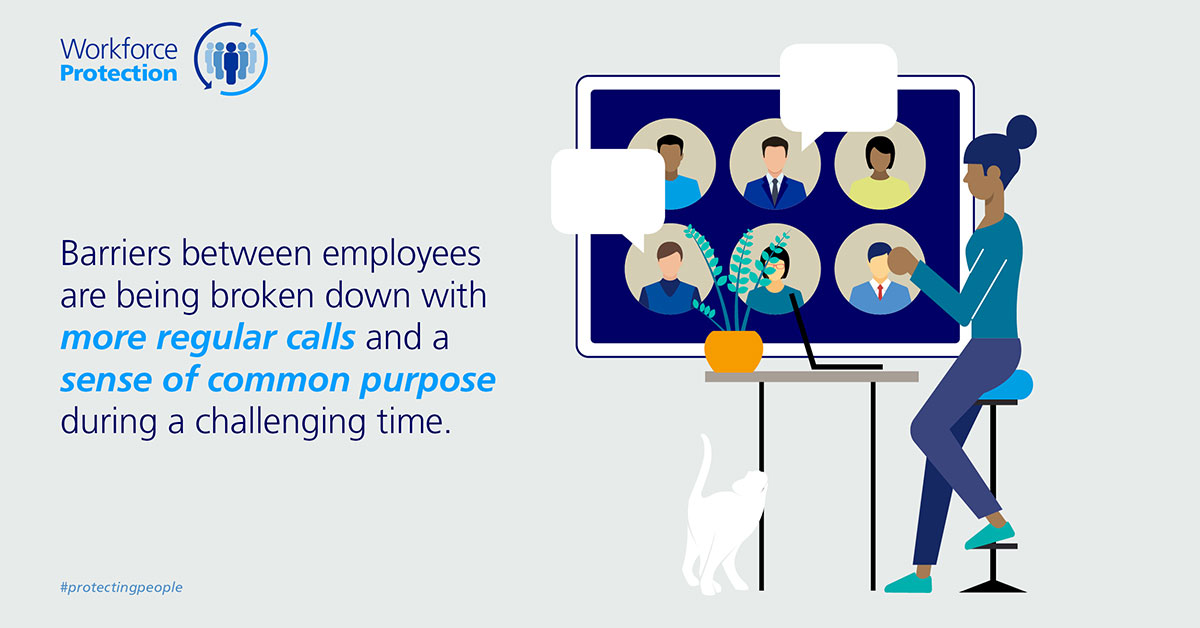
Barriers between employees are being broken down even though they are so far apart, with more regular calls and a sense of common purpose during a challenging time. This sense of equality can manifest itself in the most unexpected ways – even sartorially. “These recent events have helped us drive informality,” Kirby points out. “The expected style of dressing for the working day has largely gone and that will remain with us when we go back to the office.”
Employees are also benefitting from their managers renewed focus on improving their skills, such as in technology, to help them remain productive. Kirby says: “We’re learning that many businesses are looking at ways of expediting reskilling and upskilling in areas that they previously thought they had a six-to-18-month window to introduce.”
This can also help successfully redeploy employees from one department to another. In the UK, for example, reskilling has seen Zurich employees move from claims into operations. In Switzerland, some job switches were made to meet demand, such as from motor claims into travel assistance.
The electronic world
If employee flexibility and trust are the two main features of the new normal, they have largely been facilitated by the extraordinary advances in technology made so far this century.
“We’re in the midst of something quite unprecedented, as an economic issue, as a healthcare issue – to find a virus of such impact you have to go back to 1918 and the Spanish flu,” says Professor Gordon Clark, Co-Director of the SSEE Oxford-Zurich research program.
“But we’re in extraordinary times in another sense we have incredibly developed electronic infrastructure. If this had happened even 15 or 20 years ago, productivity and employment hits would have been far larger. This is the worst of times, but, equally, it’s remarkable the electronic world in which we live, and work has provided the glue to holding the economy together.”
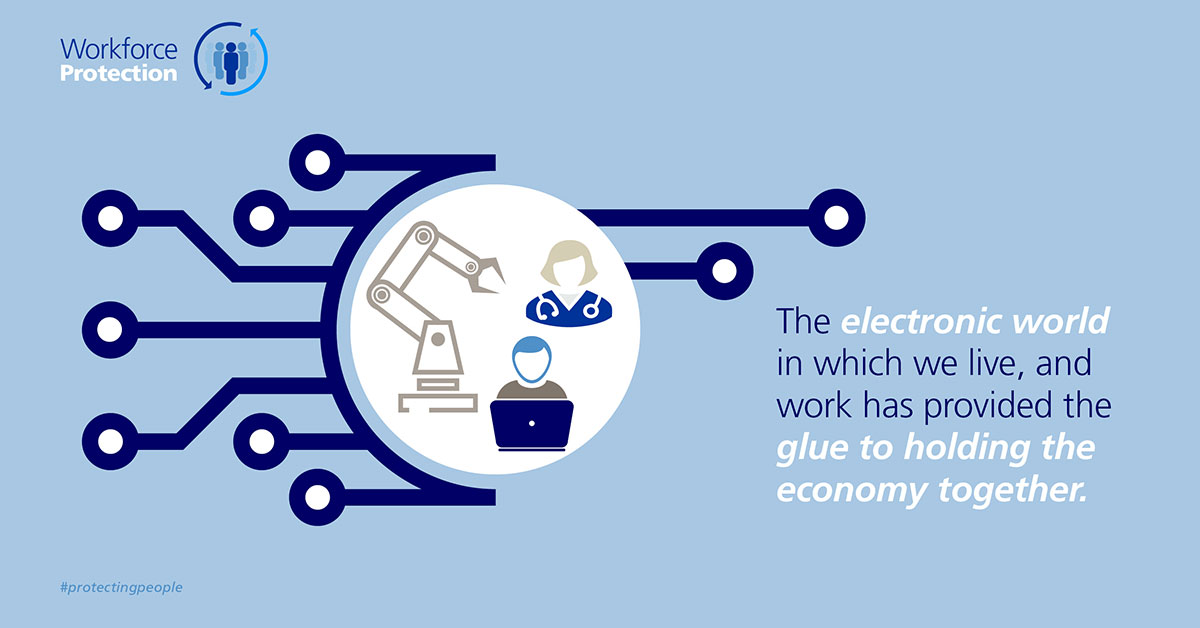
Despite that optimism, Clark does have a warning regarding the new normal. One of the reasons employees have been so productive in lockdown conditions thus far is the “social capital” of having teams that have worked together for maybe years.
“If electronic infrastructure has held the economy together, the long-term glue holding companies together is a workplace that has shared output and shared objectives. We’re succeeding at the moment because we’ve got this built up social capital that can be exploited and relied upon. It’s not obvious to me that this will be reproduced long-term if interaction is only on a functional basis.”
It seems the challenge of the new normal will be to find the right blend.




